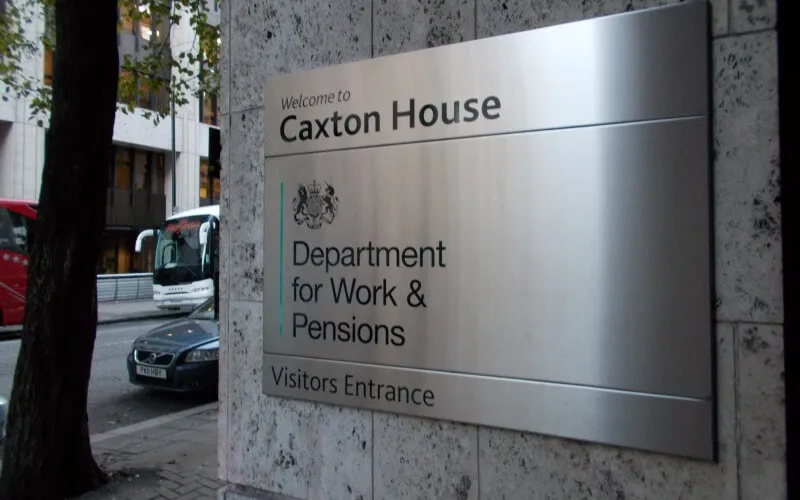The Department for Work and Pensions (DWP) is refusing to release a document that would show how its controversial plans to scrap the work capability assessment would impact disabled people.
Despite releasing documents that estimate the impact of less controversial parts of its Transforming Support white paper on disabled people and other minorities, DWP is refusing to do the same for its proposal to scrap the “fitness for work” test.
DWP has released equality impact assessments (EIAs) for eight policies, including proposals on information and advice, the Access to Work scheme, the Work and Health programme and local supported employment.
But it is refusing to do the same for its “interconnected package of measures” on occupational health services, which has not yet been finalised, and the controversial plan to scrap the work capability assessment (WCA) if the Conservatives win the next general election.
In a freedom of information response to Disability News Service (DNS), DWP said that it “has considered equality impacts” in its work on removing the WCA but that this information was exempt from disclosure under the Freedom of Information Act because the details were still “being used to help shape government policy”.
It told DNS: “We recognise that the release of the information requested could provide a greater understanding of the planned removal of the Work Capability Assessment… However, we have to balance this against the fact that the policy proposing the removal of the WCA is still in development.”
It added: “It is important that the Government preserves its safe space to consider live policy issues and the information you request includes details that are still being used to develop policy.
“On balance, the Department is satisfied that in this instance the public interest in maintaining the exemption outweighs the public interest in disclosure for both WCA and Occupational Health policies.”
This could mean that the Conservative party will go into the next general election with a promise to scrap the WCA if it regains power, but without releasing details it possesses that show how such a move would affect disabled people and other groups protected from discrimination under the Equality Act.
Last month, DNS reported mounting concerns that the government’s plans to reform the disability benefits system were fatally flawed.
The concerns focus on proposals to scrap the work capability assessment and give new “fitness for work” powers to work coaches in jobcentres.
Under the plans, disabled people who cannot work will only be able to qualify for a new health element of universal credit if they also receive the disability benefits personal independence payment (PIP), disability living allowance (DLA), or, in Scotland, adult disability payment.
Eligibility for out-of-work disability benefits would therefore be decided through the PIP or DLA assessments, or their equivalent in Scotland.
It would be left to DWP work coaches to decide if a disabled person could carry out work-related activity.
Another key concern is that the proposals would appear to remove a vital safety net that protects those who face a “substantial risk” of harm if found “fit for work”.
Vicky Foxcroft, Labour’s shadow minister for disabled people, said: “Yet again we see a lack of transparency from the DWP.
“Disabled people already have very little trust in the department and are now rightly concerned about the impact of plans to scrap the work capability assessment.
“The only way to build that trust is through transparency and co-production. Ministers need to urgently get a grip of this.”
Ken Butler, welfare rights and policy adviser for Disability Rights UK, called for DWP to publish the WCA equality impact assessment.
He said: “A recuring DWP theme during discussions about the green paper forerunner to the recent health and disability white paper was that it recognised no-one trusted it and that it was now committed to transparency.
“That doesn’t seem to have lasted very long. The scrapping of the work capability assessment without reform or replacement has been presented so far as a fait accompli.
“As is the linking of a new health element of universal credit to PIP only, and all benefit conditionality being at the discretion of work coaches.
“That this will lead to many disabled people being financially worse off and at risk of benefit sanctions seems inevitable.
“That the EIA will mean ‘a greater understanding of the planned removal of the work capability assessment’ is the very reason it should be published.”
Meanwhile, Labour’s shadow work and pensions secretary, Jonathan Ashworth, told disability minister Tom Pursglove in parliament this week that his proposal to “essentially collapse the work capability assessment into the PIP assessment” would mean up to one million people with fluctuating health conditions, or those recovering from treatment, could lose out on up to £350 a month, which he said was “causing considerable distress”.
A note from the editor:
Please consider making a voluntary financial contribution to support the work of DNS and allow it to continue producing independent, carefully-researched news stories that focus on the lives and rights of disabled people and their user-led organisations.
Please do not contribute if you cannot afford to do so, and please note that DNS is not a charity. It is run and owned by disabled journalist John Pring and has been from its launch in April 2009.
Thank you for anything you can do to support the work of DNS…

 Disabled MP who quit government over benefit cuts tells DNS: ‘The consequences will be devastating’
Disabled MP who quit government over benefit cuts tells DNS: ‘The consequences will be devastating’ Minister finally admits that working-age benefits spending is stable, despite months of ‘spiralling’ claims
Minister finally admits that working-age benefits spending is stable, despite months of ‘spiralling’ claims Timms says cuts must go ahead, despite being reminded of risk that disabled claimants could die
Timms says cuts must go ahead, despite being reminded of risk that disabled claimants could die